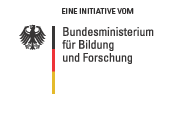Oliver Ullrich: Illuminating the life of cells in outer space
-
 <ic:message key='Bild vergrößern' />
<ic:message key='Bild vergrößern' />
- Oliver Ullrich is Germany's first Professor of Space Biotechnology. Quelle: Ullrich
02.06.2008 -
What happens to human cells when astronauts leave the Earth's atmosphere is largely a mystery. Researchers have known for a long time that weightlessness affects the immune system - sometimes with fatal consequences. "Technically, we are able to survive in space for months at a time, and it is likely that people will fly to Mars in the first half of this century. But even today, we do not even understand the simplest processes and operations in human cells that are triggered by weightlessness," says Oliver Ullrich. For this reason, the life scientist has dedicated himself to a highly particular field of research: space biotechnology. In October 2007, he became the first professor in this field in Germany.
To get to the bottom of this curious conundrum of cell biology, Ullrich and his staff in Magdeburg are working closely with engineers from the Faculty of Mechanical Engineering, to which the Space Biotechnology department belongs. The researchers have developed a sophisticated tissue culture laboratory that has been used in an Airbus A300 in more than 400 parabolic flights. In such a flight, the plane performs a vertical freefall, which mimics weightlessness inside the craft, during which the behaviour of the cell cultures can be studied. Other projects, including test equipment for research satellites and for the International Space Station (ISS), are in developmental stages, and are being carried out in continuous close cooperation with the space industry and the German Aerospace Center (DLR). "Our project TRIPLE LUX A will fly on the ISS in 2009," announces Ullrich.
Commuting between Magdeburg and Zurich
Ullrich is not only an honorary professor in Magdeburg, but as of September 2007, his "main occupation" has been as Associate Professor of Anatomy at the University of Zurich. There, the scientist is occupied with the structure and function of cells and organisms. "I find anatomy extremely exciting, because it's the most interdisciplinary science of all," he enthuses.
From early on at university, the two-times doctorate researcher star Oliver Ullrich, born in 1970 in Berlin, was interested in a number of different areas of research, and exploited the university landscape to undertake multi-tiered studies: He studied medicine and biochemistry at the Free University Berlin, where he became a Doctor of Natural Sciences (rerum naturalium). He received his doctoral cap in medicine at Humboldt University, where he was promoted to Professor of Anatomy and Cell Biology in 2002. Tracing a thread through Ullrich's work are the influence of external forces on the cells of the immune system and the mechanisms of malfunction in the micro-components of the human body, such as in his medical doctorate on cellular processes in rheumatoid arthritis. In his doctoral thesis in the area of biochemistry, he elucidated a regulatory mechanism in the decomposition of damaged protein structures in the nucleus of immune cells. These structures are also found in patients that have developed a resistance to cytostatics. At the Center of Anatomy at the Berlin Charité, Ullrich studied damage mechanisms in the central nervous system (2001, Nature Cell Biol. Vol. 3, S. 1035-1042). The results will possibly help to clarify what happens inside nerve structures during multiple sclerosis (2003, J. Exp. Med., Vol. 198, S. 1729-1740).
When cell mechanisms no longer function in space
So how did Oliver Ullrich get involved in space biotechnology from this background? It all began in 1984 with a publication in the specialised magazine Science (1984, Vol. 225, S. 228-230). "Augusto Cogoli from ETH Zurich had described the results from experiments on the space shuttle, whereby some metabolic processes in cells, which I was also encountering on a daily basis in my work, were no longer functioning in weightless conditions. Some vital processes misfire as soon as they're outside gravity, which has of course been present during the entire process of evolution", says Ullrich. Since that time, Ullrich's central enquiry has been: What are the mechanisms in cells that are dependent on gravity?
Above all, this knowledge is of great importance for the health of the astronauts who have to spend extended periods in the weightlessness of space. "If more could be found out about these processes, the effect of gravity could eventually be replaced by medication," says Ullrich. In the long term, researchers such as Ullrich also want find out whether people could survive indefinitely in weightless conditions. At this time, the field of space biotechnology is only just beginning to understand the specific mechanisms involved. Thereby, the past three years of Ullrich's research into weightlessness have been focused on two key molecular mechanisms that do not function properly in space. For example, important immune cells such as T-lymphocytes appear to stop dividing, and the internal balance of the protein metabolism is thrown out of kilter.
Ullrich: "I am an all-round researcher"
And what occupies Ullrich if he's not pursuing his research or enthusing students in the lecture hall - an activity for which he has also received recognition? "I am an all-round researcher; there is no separation between work and leisure for me," he insists. This dedication is underlined by his work in Malaysia for an Asian medicinal plant project in the tropical forest, which is aimed at finding new species of plants and extracting new substances.
As research is a globally networked in these times, he is continuously making new colleagues, "there are a great many interesting personalities,” he says. Communication is also very important to him - that scientists are seen as uncommunicative he thinks is nothing more than stereotyping.
Nevertheless, the nature-loving keen visitor to Switzerland likes to steer a boat across the Bodensee, put his feet up, and read up on philosophy and politics, and, of course, about the universe " but sadly this happens all too rarely.”
Author: Andrea Gerber-Kreuzer





